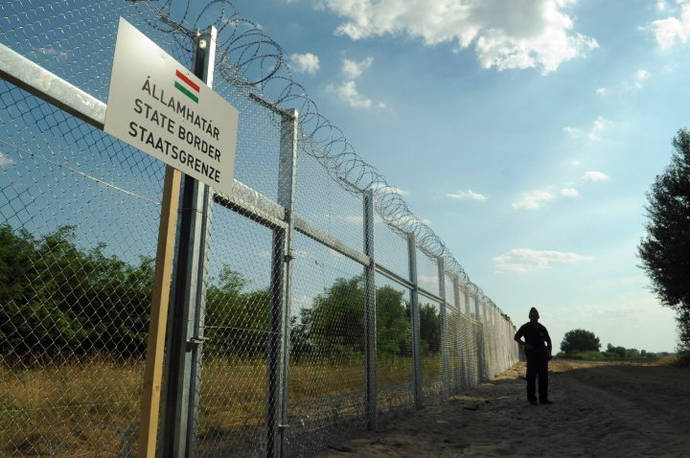Top EU Official Should Use Visit to Press Budapest to Comply with International Law
On the same day, the EU Commissioner for Migration, Dimitris Avramopoulos, is set to visit Budapest to have “serious discussions” with Hungarian authorities about whether the new law and other measures are consistent with EU standards.
Avramopoulos’ visit is long overdue.
The European Commission is supposed to ensure that EU governments comply with EU standards – including the right to asylum and protection against human rights abuse.
But, in reality, the Commission has been reluctant to hold Hungary to account for its actions against asylum seekers, which began with blocking their passage through Europe with razor wire fences, and led to their criminal prosecution, and even their forced – and sometimes violent – push out of Hungary back to the Serbian border. Hungary now wants everyone seeking protection to go through an unfair fast track procedure while detained in a “transit zone.”
It’s hard to not conclude that the Commission’s failure to press Hungary has encouraged other EU countries to replicate its approach.
In Poland, draft legal amendments would allow for both similar automatic detention of asylum seekers and for forcing them to Belarus – a country with no effective protection for those fleeing persecution. In Slovenia, recent amendments to the Alien Act make for easy removal of asylum seekers to Croatia.
The European Court of Human Rights – which is not an EU court – ruled in March 2017 that Hungary’s detention of asylum seekers in transit zones violates their human rights. Blanket detention of asylum seekers also violates EU directive on reception conditions and international refugee law.
European Commission enforcement action in 2015 against Hungary’s abusive border practices has stalled. That can’t be allowed to happen again.
For the sake of asylum seekers in Hungary, those in other EU member states tempted to follow in Hungary’s footsteps, and for the credibility of the EU’s values, Avramopoulos should demand that Hungary change course. He should also be willing to use legal enforcement action if Hungary fails to comply.
Lydia Gall/ Human Rights Watch
Pressenza
Creative Commons



















 Si (
Si ( No(
No(






